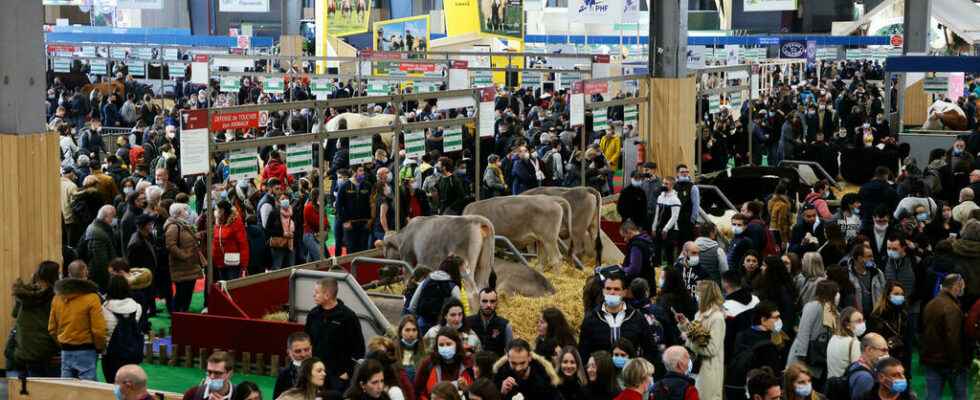The International French Agricultural Show opened its doors this weekend in Paris. After two years of suspension due to Covid, it was to be a party. But the war in Ukraine weighs down the atmosphere, it reminds us to what extent this activity, today weakened by competitors from the Black Sea, has once again become strategic.
On the agricultural level, Russia and Ukraine are readily associated in the same group, that of exporters from the Black Sea, because it is via the ports of the second that these two historic producers of cereals ship their goods around the world. They are also associated for their common advantage: black earth, a soil so rich in humus that fertilizers become superfluous. Their potential has long been subject to the vagaries of weather and frost and restricted by production methods inherited from the Soviet system; But in recent years these two countries have been working hard to boost their harvest. Agriculture accounts for 15% of Ukraine’s GDP, 40% of its exports. A sector therefore crucial, vital for the economy of the country. Russia, for its part, became the world’s leading wheat exporter in 2016.
Are these two countries direct competitors of France?
From France, the leading European exporter, and from Europeans in general. Between them, Russia and Ukraine produce about as much wheat as the whole of Europe but they export twice as much in the world. They have become worrying rivals in countries around the Mediterranean such as Egypt or Algeria, traditional customers of French wheat. Overall, French production is stagnating while that of these two countries is soaring. Ukraine’s reservoir of arable land attracts foreign investors, this country is today the breadbasket of Europe, while Russia has considerably revised its methods to boost its production
The sanctions imposed in 2014 accelerated the development of Russian agriculture?
They actually rushed things, Moscow wanted to diversify its supply to escape embargoes. Moreover, the fall in the ruble following the Ukrainian crisis has benefited its exports by making them more competitive compared to wheat in the euro zone. But agriculture has been a long-standing priority for Vladimir Putin. The concept of food sovereignty developed this weekend by President Macron is an already old obsession of the Kremlin. It was from the 2000s that Russia relaunched its agriculture, drawing inspiration from the European model. Russia has become self-sufficient for its poultry and pork needs, while France imports 25% of its consumption and sees its production stagnate.
Is France still a great agricultural power?
It is still the leading producer country in the European Union, and it is again its wine and cereal exports that mitigate the deficit in its trade balance. But the agricultural surplus is dwindling year after year. Due to a lack of competitiveness in relation to the main players in the world market, North and South Americans, Russians and Ukrainians, but also in relation to European partners. This French weakening comes at a time when agriculture is once again becoming a strategic sector. For twenty years, demand has exploded with the increase in the world population and the new needs of the middle classes in emerging countries, including of course China. Agriculture is therefore once again becoming a geopolitical weapon that must be mastered to remain sovereign, as is the energy between Russia and the Europeans today.
► In brief
The ruble has lost 30% of its value in the past few hours
The Russian currency is weakened by the new Western sanctions seeking to strangle the financing of the Russian economy. According to the European Central Bank, the European subsidiaries of Russia’s leading private bank, Sberbank, are already bankrupt due to massive cash withdrawals in recent days.
Another consequence of the war in Ukraine: the reversal of Germany’s energy policy
Berlin now wants to extend the life of coal-fired power plants that were due to close in 2030 and even nuclear power plants that were scheduled for final closure this year. To get rid of Russian gas, Germany is also announcing the construction of two liquefied natural gas terminals. In terms of energy, note the new jump in oil: +6% this morning for a barrel of American crude.
